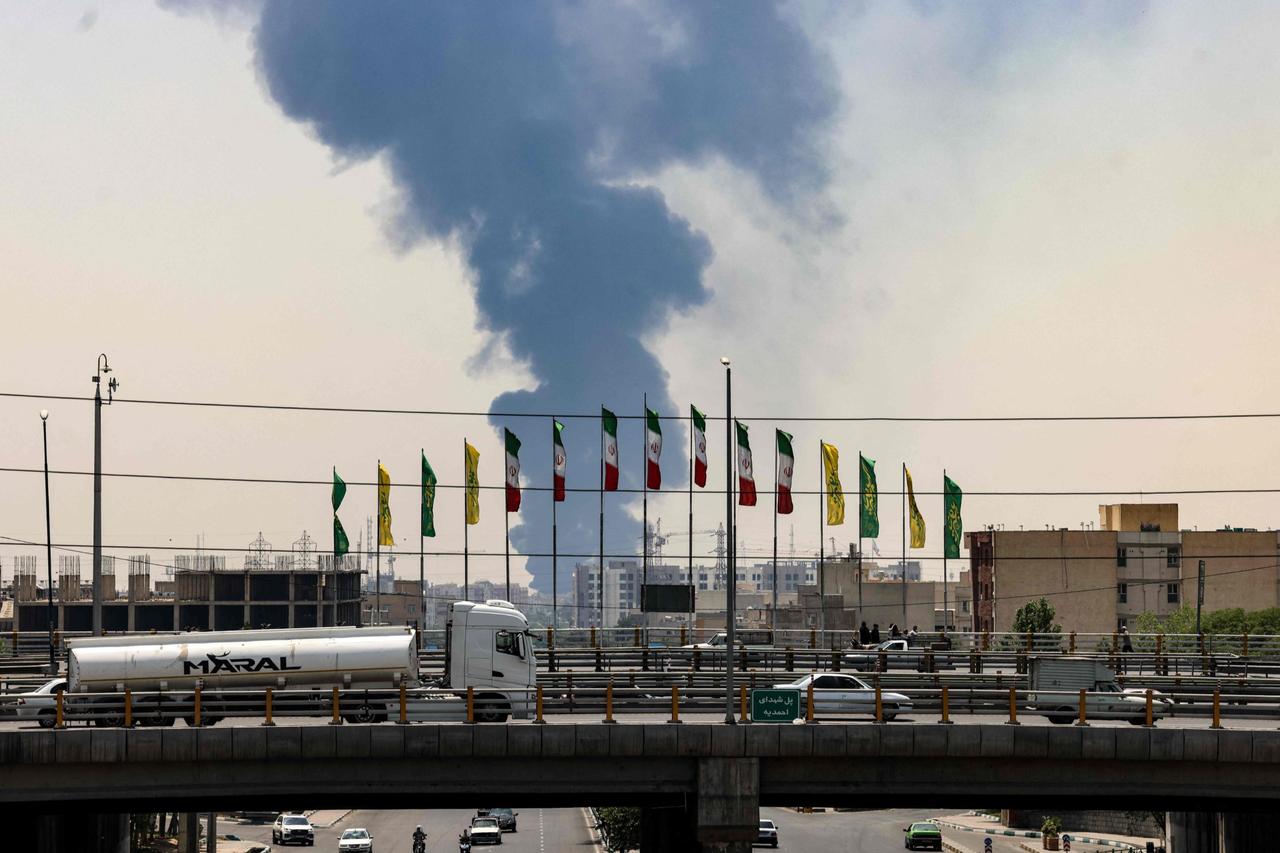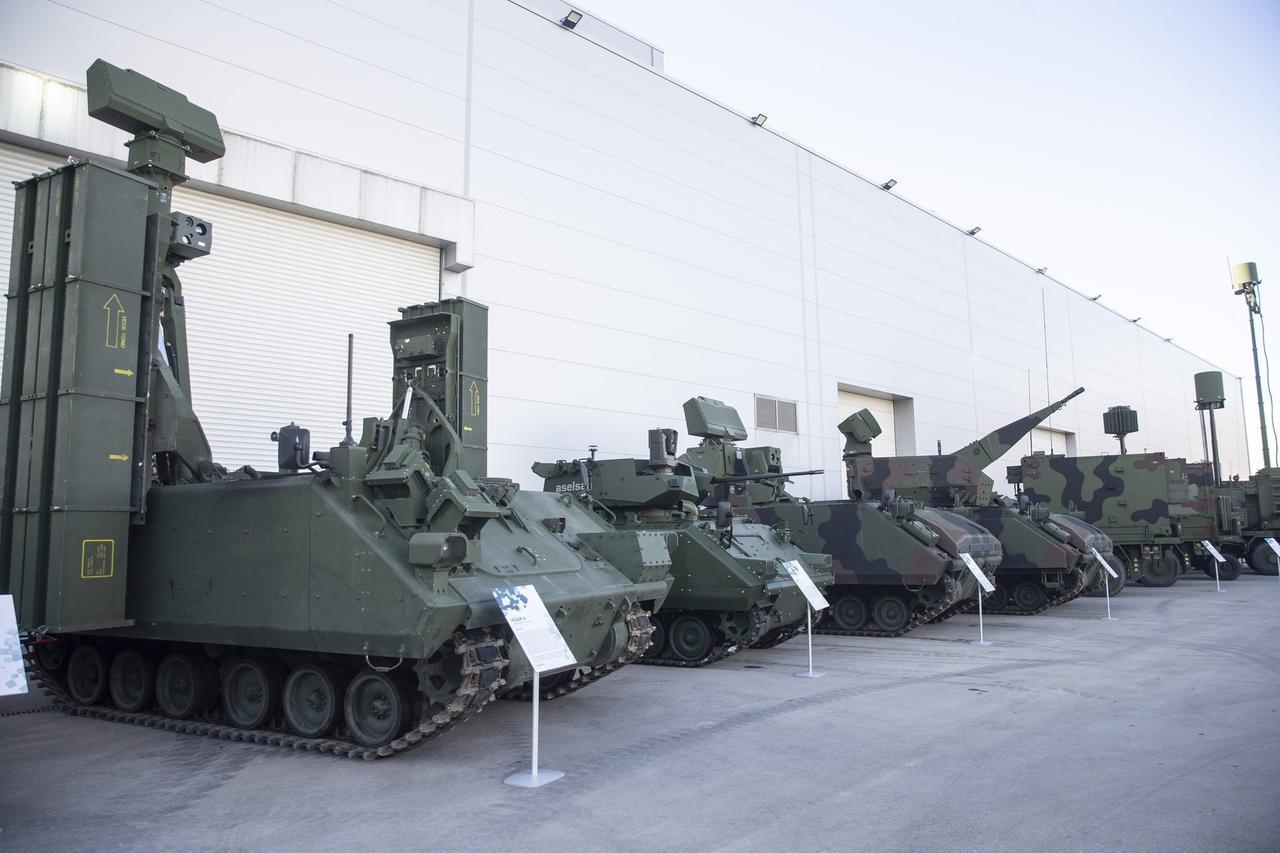
The recent 12-day military confrontation between Israel and Iran has fundamentally altered Middle Eastern power dynamics, cementing Israel's military supremacy and exposing critical vulnerabilities that should serve as a wake-up call for Türkiye.
Israel’s swift victory over Iran serves as a constant reminder of the United States' long-standing commitment to ensuring Israel's military dominance over its neighbors by maintaining its qualitative military edge.
It also underscores the agenda of former Western colonial powers in the region and their unwavering support for Israel at the expense of the region and the well-being of its people.
As German Chancellor Friedrich Merz bluntly stated during the G7 summit in Canada, "This is the dirty work Israel is doing for all of us"—a stark acknowledgment of the dark role that Western powers play in the region.
The swift Israeli victory has left Türkiye and Israel as the region's two dominant military powers, with increasingly divergent visions for the Middle East's future.
This reality has not gone unnoticed in Israel, where some voices are already looking toward their next target. Popular TV host Eyal Berkovic sparked controversy by suggesting that after defeating Hamas and Iran, Türkiye should be next.
Though he later claimed he was joking, Israeli analyst Yoni Ben Menachem stated more directly on i24: "Türkiye is our next enemy." Likewise, Minister of Diaspora Affairs Amichai Chikli, a member of Netanyahu's Likud party, expressed a similar sentiment during a TV interview, reinforcing the notion that Türkiye should be next.
While direct Israeli-Turkish conflict remains unlikely in the near term, Israel's expansionist agenda and Türkiye's growing regional influence make friction inevitable—particularly in Syria, where both nations maintain significant interests.
With Benjamin Netanyahu facing corruption charges and International Criminal Court (ICC) warrants while riding high on military success, Ankara cannot afford to dismiss any scenario, however remote it may seem.
Bearing in mind that Türkiye is not Iran in so many ways, the 12-day military confrontation between Israel and Iran offers invaluable lessons for Turkish defense planners. Here are five critical areas where Türkiye must act decisively.
Intelligence: The ultimate force multiplier
Israel's comprehensive penetration of Iranian security networks—through human assets, cyber operations, and local cooperation—enabled it to neutralize much of Iran's command structure before the shooting even started. This demonstrates that superior intelligence can determine conflict outcomes before the first shot is fired.
Türkiye's National Intelligence Organization (MIT) has evolved significantly under the Justice and Development Party, successfully conducting operations both domestically and internationally while foiling plots from both Israeli and Iranian intelligence services.
However, the Israel-Iran confrontation reveals how political polarization, economic weakness, and foreign sympathies can create recruitment vulnerabilities.
Türkiye must dramatically enhance its counterintelligence capabilities and expand proactive foreign intelligence operations.
In an era where conflicts are increasingly decided by information superiority, Türkiye cannot afford intelligence gaps that could prove fatal in a crisis.

Air defense: Layered protection essential
Israel achieved complete air superiority over Iran within 48 hours, leaving the country defenseless against precision strikes.
This exposed the inadequacy of traditional air defense systems designed for conventional aircraft rather than modern multi-domain threats, including cruise missiles, ballistic missiles, stealth aircraft, and unmanned systems.
Türkiye has historically relied heavily on NATO assets for air defense, a vulnerability starkly exposed during the 2011 Syria crisis when Patriot systems were withdrawn under various pretexts during Türkiye's brief confrontation with Russia.
This experience prompted Ankara to pursue its multi-layered Steel Dome air defense system—a decision the Israel-Iran conflict validates as urgent.
Türkiye should accelerate Steel Dome's development and deployment while building complementary offensive missile capabilities. Effective deterrence requires both defensive shields and the ability to strike back decisively.

Precision strike: Reach and accuracy matter
Israel's rapid, precise strikes deep into Iranian territory with minimal risk sent an unmistakable message about the importance of advanced fighter jets and special forces in modern warfare. Precision firepower combined with intelligence creates decisive advantages that can shape entire conflicts.
Türkiye has demonstrated impressive military capabilities and precise strikes in operations against terrorist groups, the Assad regime, Libya's Haftar and Azerbaijan's Karabakh campaign. However, the Israel-Iran confrontation underscores the need for even more advanced capabilities.
Türkiye should continue investing in its indigenous KAAN fifth-generation fighter aircraft, standoff missiles, hypersonic weapons, armed drones, and loitering munitions.
The conflict also highlighted the critical importance of stealth technologies and electronic warfare capabilities—areas where Türkiye must accelerate development to operate effectively in contested environments.
Resilient command systems: Surviving the first strike
Iran's command-and-control systems proved vulnerable to Israel's attacks, hampering its ability to respond effectively. Modern conflicts require resilient communications networks that can function under heavy bombardment and cyber assault.
Türkiye should harden key facilities, build redundancy into communication networks, and develop contingency plans for simultaneous threats from multiple directions.
The conflict showed that even sophisticated targeting cannot easily destroy well-fortified underground facilities—a lesson Türkiye should apply to protecting critical infrastructure.
Logistics and strategic autonomy: Preparing for isolation
Israel's ability to rapidly resupply and mobilize forces proved crucial to its success, while Iran's isolation limited its options.
This highlights a fundamental challenge for Türkiye: while NATO membership provides significant advantages, Ankara cannot assume automatic support in every scenario—especially in hypothetical conflicts involving Israel, which enjoys strong U.S. and Western backing.
This reality reinforces Türkiye's emphasis on defense self-reliance and strategic autonomy. Türkiye should enhance its logistical capabilities and prepare for scenarios where it might need to operate independently, even while leveraging alliances when possible.
The broader implications
The Israel-Iran confrontation represents more than a tactical victory; it demonstrates how technological superiority, intelligence dominance, and strategic preparation can overcome numerical disadvantages and geographic constraints.
For Türkiye, these lessons are particularly relevant in an increasingly complex regional environment where traditional alliances may not guarantee security.
Türkiye's response to these challenges will determine whether it can maintain its position as a major regional power or find itself increasingly vulnerable to the United States' long-standing commitment to Israel’s qualitative military edge.
The emerging outcomes from this conflict in the Middle East will be determined by the nations that effectively learn from its lessons. Türkiye has the resources, capabilities, and strategic vision necessary for adaptation—but this will only be possible if it maintains this awareness.